Ecuador's Amazonian indigenous community of Sarayaku is in a state of rebellion against the central government after refusing entry to a police contingent arriving by helicopter on the morning of May 6.
The helicopter landed, but was barely able to stay five minutes after being threatened by 300 people carrying machetes, muskets and a net to throw over the helicopter.
“This is extremely serious, an attack on the rule of law in this country,” President Rafael Correa said. “Tomorrow, any other community could claim the right to harbour fugitives.”
-
-
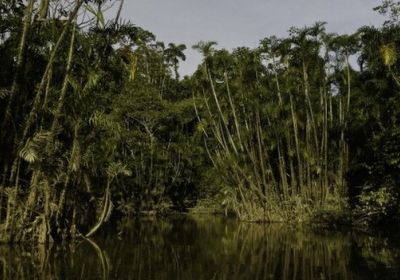 Ecuadorian President Rafael Correa’s decision to drill for oil in the ITT block of Yasuni National Park looks set to be reviewed at a referendum. Environmental groups delivered hundreds of thousands of signatures to the National Electoral Commission on 11–12 April petitioning against the decision. United for Yasuni (Yasunidos) collected 856,704 signatures. Kichwa indigenous federation Ecuarunari delivered more than 200,000 and Amazon Total Defence Front (FDTA) provided 584,008.
Ecuadorian President Rafael Correa’s decision to drill for oil in the ITT block of Yasuni National Park looks set to be reviewed at a referendum. Environmental groups delivered hundreds of thousands of signatures to the National Electoral Commission on 11–12 April petitioning against the decision. United for Yasuni (Yasunidos) collected 856,704 signatures. Kichwa indigenous federation Ecuarunari delivered more than 200,000 and Amazon Total Defence Front (FDTA) provided 584,008. -
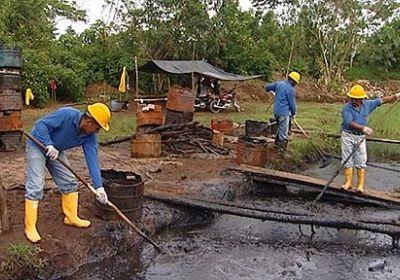 A New York judge has overruled the US$9.5 billion (A$10.5 billion) in compensation for toxic waste dumping that Chevron had been ordered to pay to Ecuadorian villagers. The oil company, the world’s third largest, was found guilty in 2012 by an Ecuadorian court of causing huge environmental damages in the Amazon Basin. At the time, it was the largest environmental damages lawsuit ever. Texaco oil company, which merged into Chevron Corporation in 2001, operated in the Sucumbios province of Ecuador, in the uppermost headwaters of the Amazon Basin, from 1964 to 1992.
A New York judge has overruled the US$9.5 billion (A$10.5 billion) in compensation for toxic waste dumping that Chevron had been ordered to pay to Ecuadorian villagers. The oil company, the world’s third largest, was found guilty in 2012 by an Ecuadorian court of causing huge environmental damages in the Amazon Basin. At the time, it was the largest environmental damages lawsuit ever. Texaco oil company, which merged into Chevron Corporation in 2001, operated in the Sucumbios province of Ecuador, in the uppermost headwaters of the Amazon Basin, from 1964 to 1992. -
United States oil giant Chevron has filed a suit for damages against a cartoonist who ridiculed its legal antics in its ongoing case against Ecuador. The oil giant is using the US court system to seek to avoid paying US$9 billion that an Ecuadorian court ruled it owed in environmental compensation for dumping oil waste in the Amazon Basin. Mark Fiore, Pulitzer Prize-winning cartoonist with The San Francisco Chronicle, has now been included in the ongoing legal dispute.
-
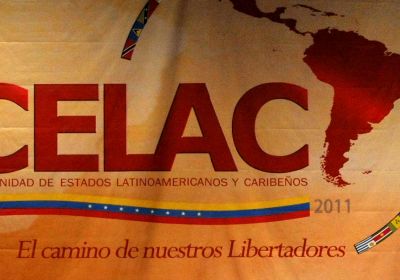 Venezuelan President Nicolas Maduro has called for an “eradication” of “colonialism” in Latin America at the annual summit of the Community of Latin American and Caribbean States (CELAC). During the summit held in Cuba’s capital, Havana, over January 28 and 29, Maduro called for Puerto Rican independence and an end to British administration of the Falklands/Malvinas Islands, to which Argentina claims sovereignty. Puerto Rico was offered full membership of CELAC under a proposal made to the summit by Venezuela.
Venezuelan President Nicolas Maduro has called for an “eradication” of “colonialism” in Latin America at the annual summit of the Community of Latin American and Caribbean States (CELAC). During the summit held in Cuba’s capital, Havana, over January 28 and 29, Maduro called for Puerto Rican independence and an end to British administration of the Falklands/Malvinas Islands, to which Argentina claims sovereignty. Puerto Rico was offered full membership of CELAC under a proposal made to the summit by Venezuela. -
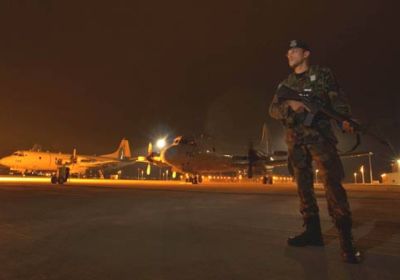
The International Criminal Court (ICC) was established at The Hague in 2002 to investigate and prosecute individuals alleged to have committed war crimes, crimes against humanity and the crime of genocide.
-
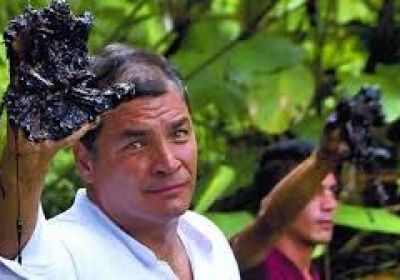 Having virtually all the money in the world often means you can buy silence, you can buy time, and you can buy lies. Chevron has demonstrated this time and again in its decades-long battle to evade accountability for deliberately dumping 18 billion gallons of toxic wastewater into the Ecuadorian Amazon. The problem is that this time, what Chevron has bought is a bag of lies in the form of false testimony from a thoroughly disreputable source, and it isn't able to hide the price tag.
Having virtually all the money in the world often means you can buy silence, you can buy time, and you can buy lies. Chevron has demonstrated this time and again in its decades-long battle to evade accountability for deliberately dumping 18 billion gallons of toxic wastewater into the Ecuadorian Amazon. The problem is that this time, what Chevron has bought is a bag of lies in the form of false testimony from a thoroughly disreputable source, and it isn't able to hide the price tag. -
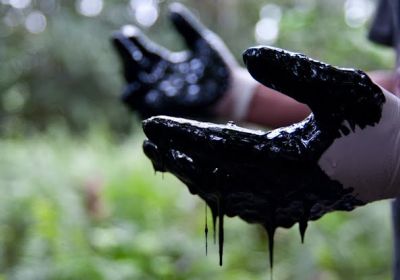 From Richmond, California to Ecuador and Romania, communities affected by oil giant Chevron’s operations are rising up to demand justice. Chevron’s response in each case has been consistently irresponsible: Deny any wrongdoing, cover up the extent of corporate malpractice and environmental contamination, and go on the offensive against anyone demanding the company take responsibility for its messes. But lately, the company has really been on a tear, taking its anti-democratic attacks to bold new heights.
From Richmond, California to Ecuador and Romania, communities affected by oil giant Chevron’s operations are rising up to demand justice. Chevron’s response in each case has been consistently irresponsible: Deny any wrongdoing, cover up the extent of corporate malpractice and environmental contamination, and go on the offensive against anyone demanding the company take responsibility for its messes. But lately, the company has really been on a tear, taking its anti-democratic attacks to bold new heights. -
In an interview with independent progressive media outlet Democracy Now! last month, Ecuador's foreign minister, Ricardo Patino, discussed why President Rafael Correa did not attend the United Nations General Assembly then taking place.
-
Ecuador’s foreign ministry announced on September 20 that the US has seemingly denied visas to a delegation set to travel to the United Nations General Assembly in New York, RT.com said the next day. The Ecuadorians were planning to present their case in an ongoing dispute against Chevron-Texaco. The ministry said the visas for the five Ecuadorian nationals were returned by the US Embassy in Quito “without any explanation”.
-
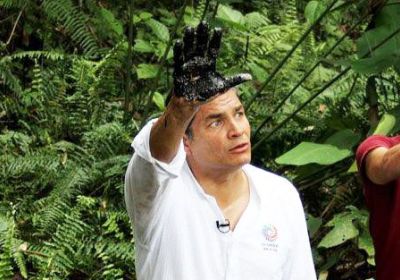
During a visit to New York for the United Nations General Assembly, Ecuador’s foreign minister Ricardo Patino joined independent media outlet Democracy now! on September 23 to discuss his government’s involvement in two closely watched environmental legal battles.
-
The Ecuadorian government of Rafael Correa has withdrawn its ambassador to Egypt on August 14 amid bloody massacres of supporters of ousted Muslim Brotherhood President Mohamed Morsi, Reuters said.